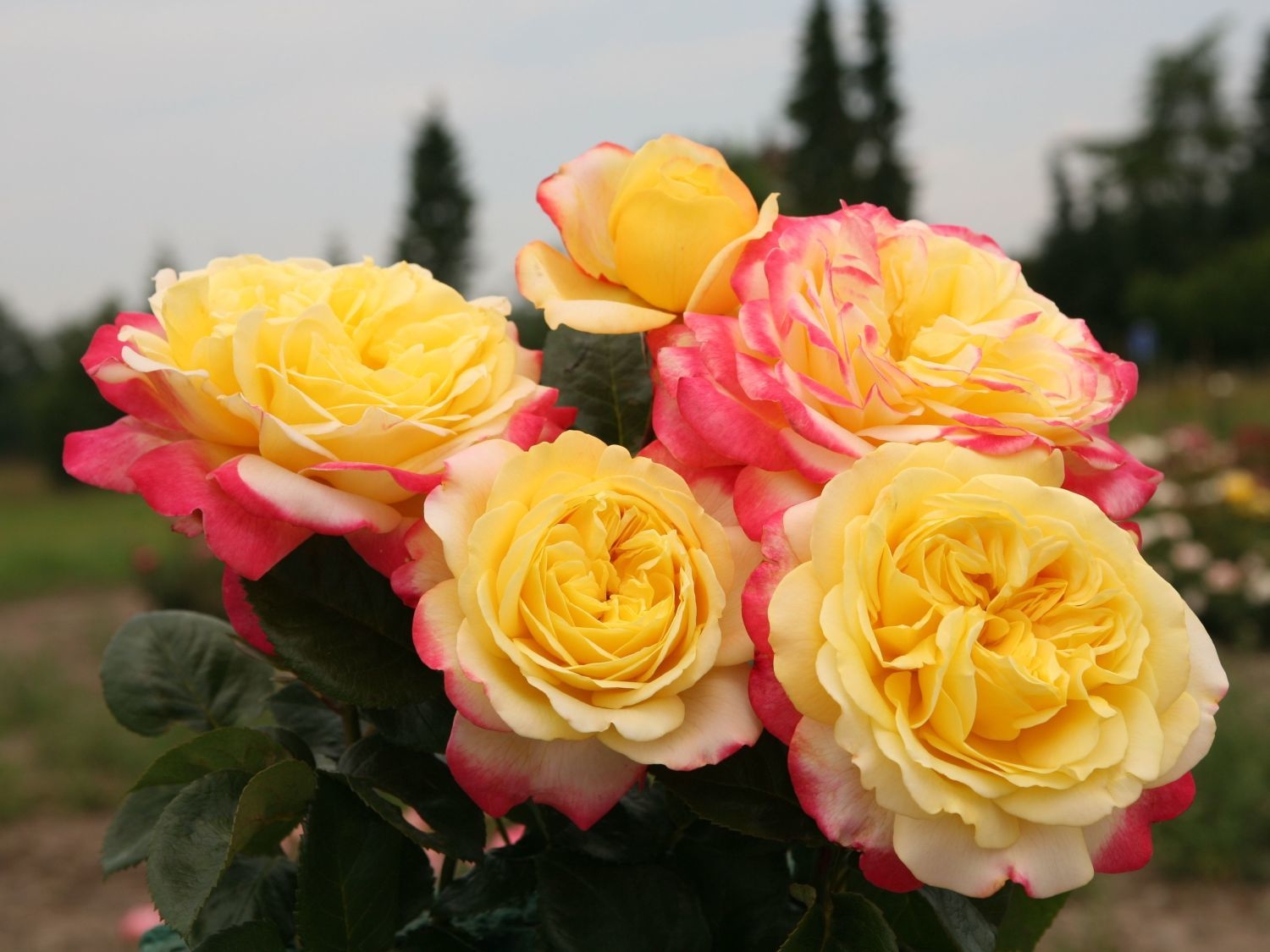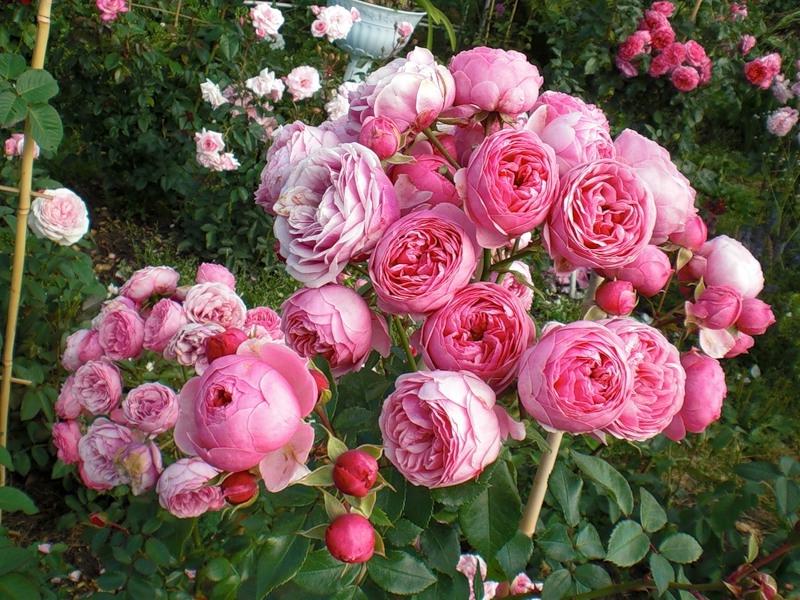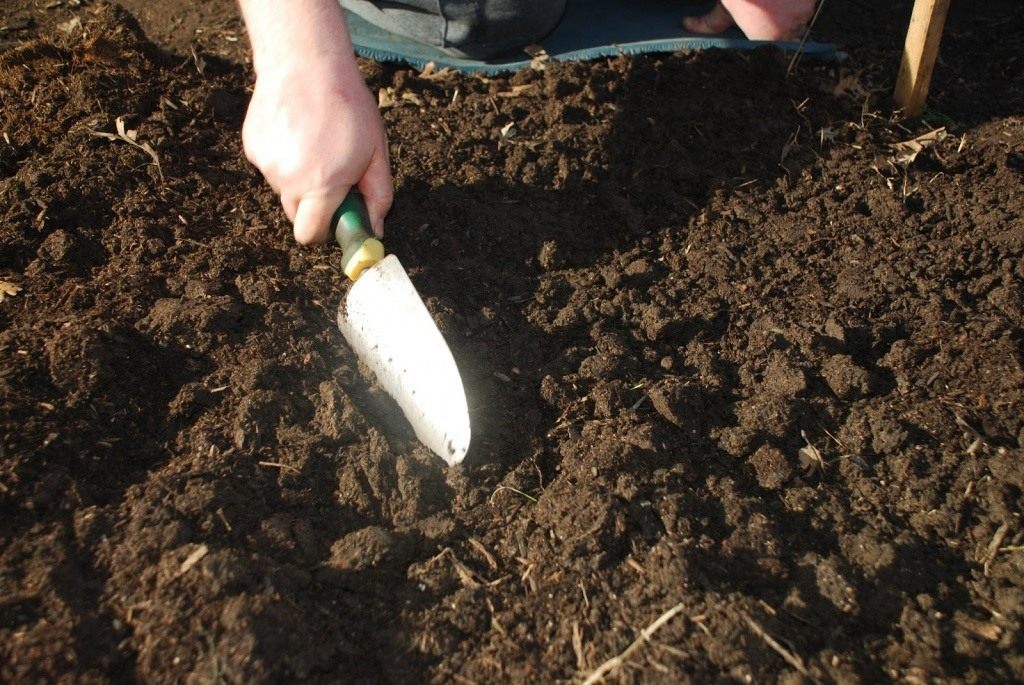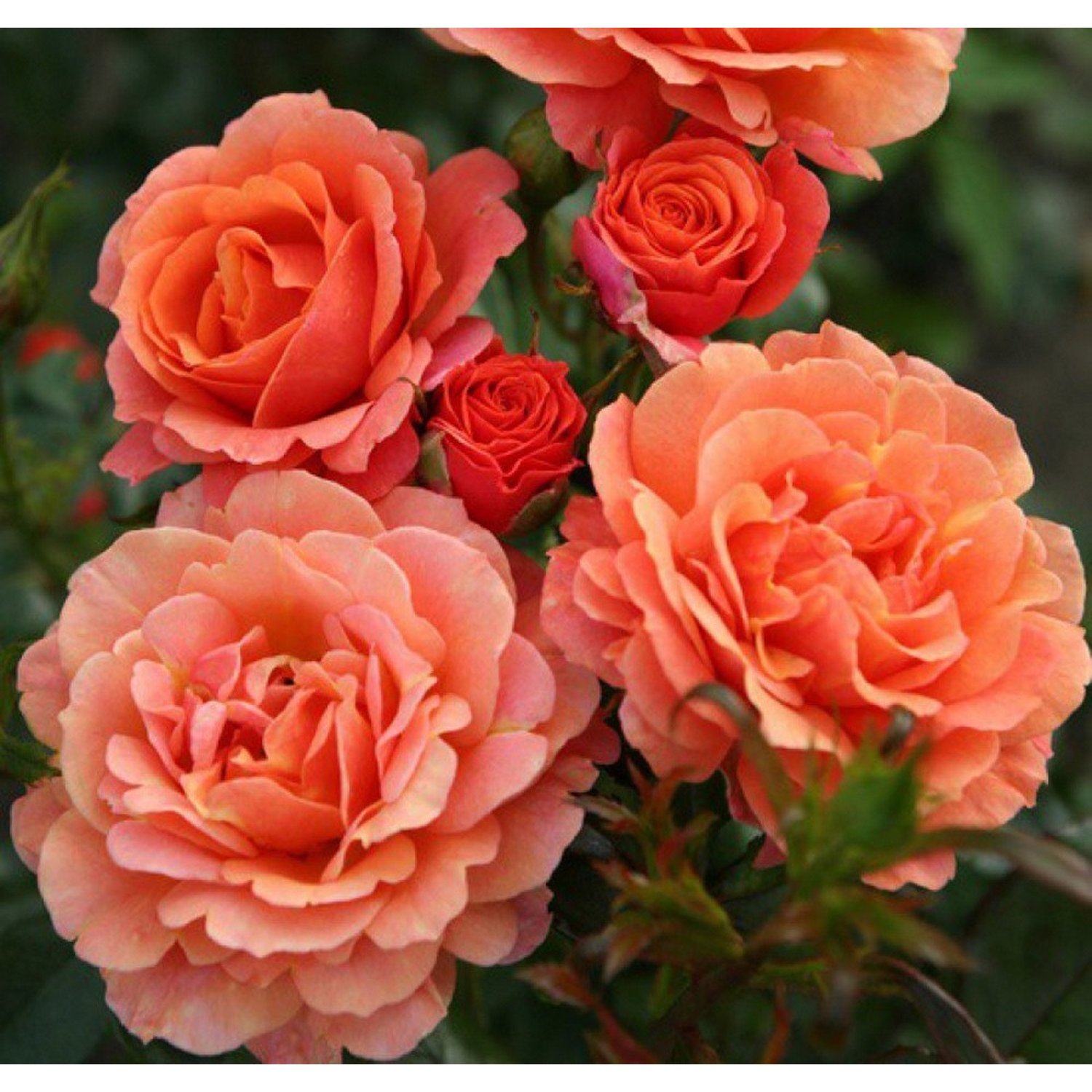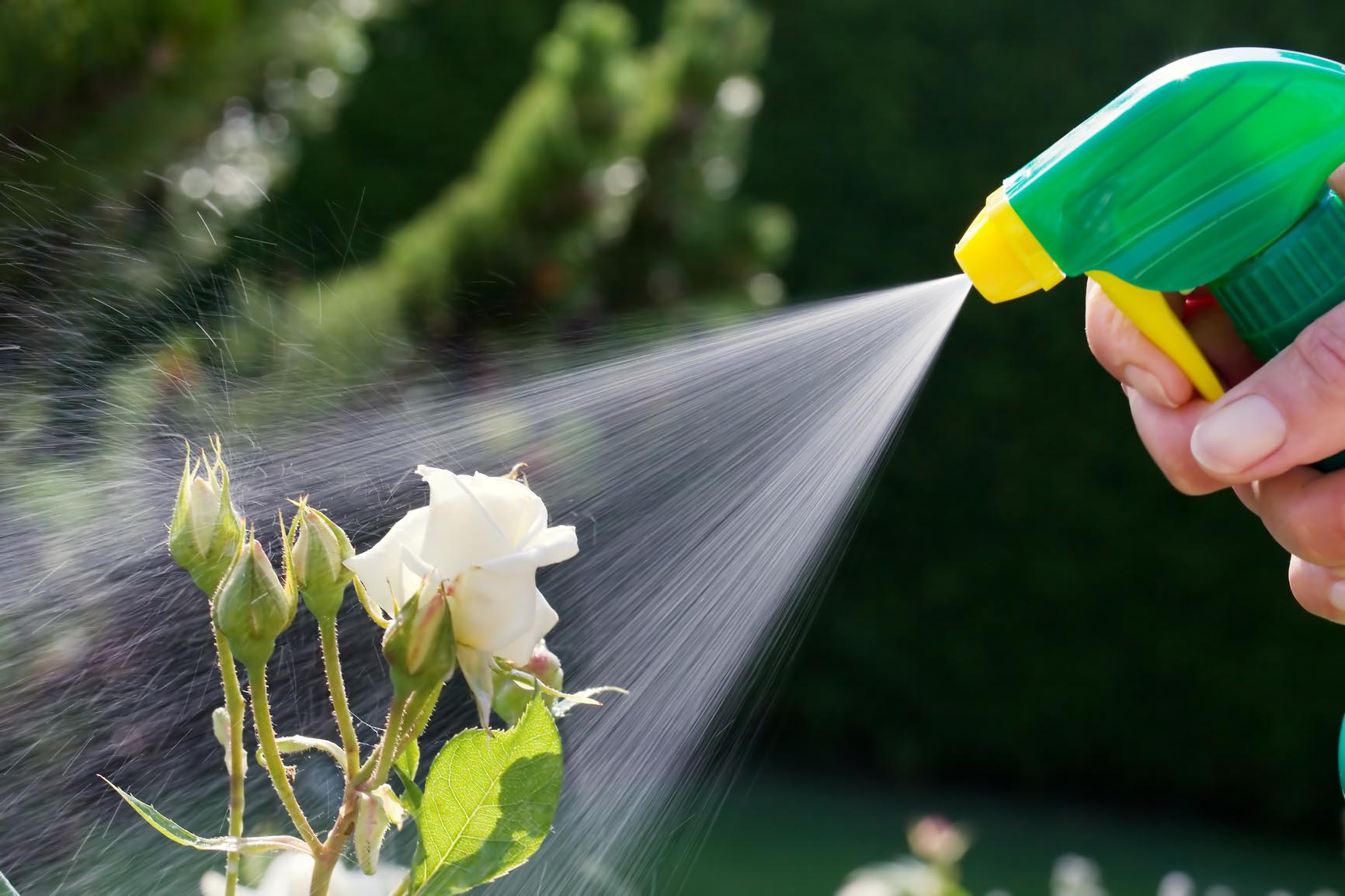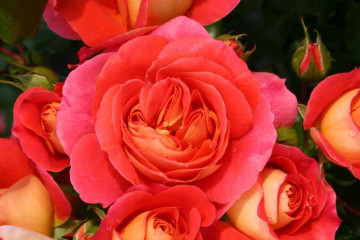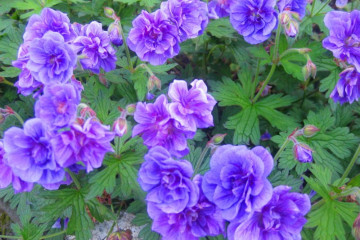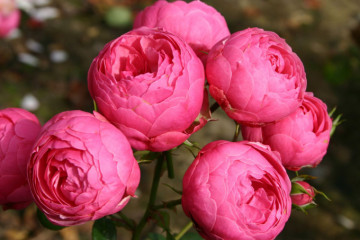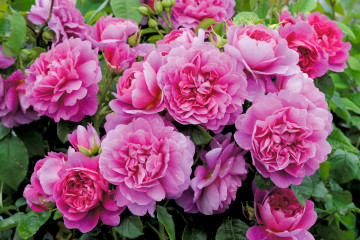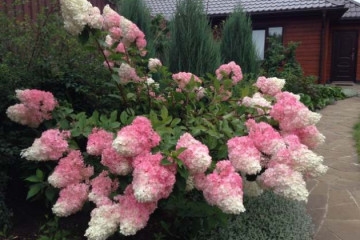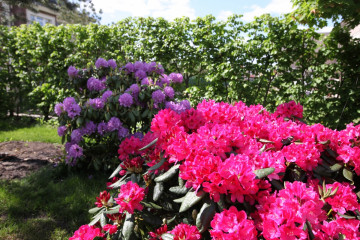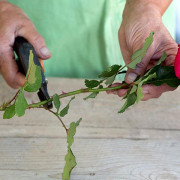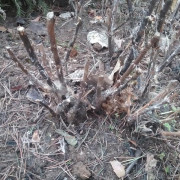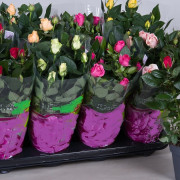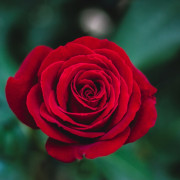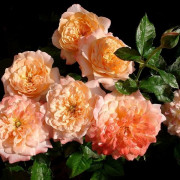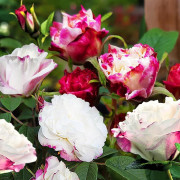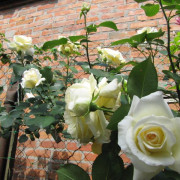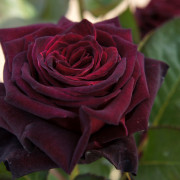Rosa Kordes - what is this garden group
Content:
There are many varieties and groups of roses, differing in appearance, smell, color and shape. The most popular are German roses of Cordes, which are used both for ennobling plots and for creating bouquets and decorating a house.
Rosa Cordes (Kordes) - what is this garden group, the history of creation
Rosa Cordes is a young group that has appeared thanks to the Rugosa and Vihurayan varieties. The founder of this species was the head of the company Cordes, she was one of the ten best rose nurseries around the world. This company today has many varieties and hybrid inflorescences.
Brief description of the cattery, characteristics
Nursery Cordes is a well-known organization that is famous for the production of seedlings, crossing different varieties of roses and breeding new types of inflorescences. The organization began its existence in 1887, and was founded by Wilhelm Cordes. The gardener's descendants continued their work, and for more than 100 years the organization has been engaged in the selection and reproduction of greenhouse roses.
Varieties of roses of the Cordes group
Roses of Cordes are many different varieties and types of plants. The most common of them are distinguished not only by their pleasant appearance, but also by their high frost resistance and good immunity. A brief description of popular groups is presented below.
Floribunda
The variety was obtained by crossing nutmeg rose, tea and polyanthus. Floribunda is a fairly unpretentious resistant plant that has good immunity and a long flowering period. This type of rose blooms in summer, the dormant period begins in late autumn.
Tea-hybrid
One of the most popular bands. It has a delicate aroma, good winter hardiness and many pests, a long growing season. Hybrid tea inflorescences have a variety of shapes and shades.
Groundcover
Ornamental plants that are used to improve the territory. The growing season falls at the beginning of summer, the end occurs in early autumn, with the first cold weather. This group of roses is easy to care for. It does not tolerate severe frosts, therefore it is not suitable for growing in regions with harsh climatic conditions. Flowers require feeding during the dormant period, as well as shelter from frost and precipitation.
Climbing
Inflorescences used to improve the suburban area. The name of the roses speaks for itself - this species is distinguished by small flowers that grow in small groups and weave around the set supports. Roses require care in winter and preparation for cold weather.
Park
Park roses are lush inflorescences with up to 150 petals per bud.Park rose bushes can grow up to 150 cm in length. These plants smell good, bloom in summer and are distinguished by a variety of colors and shapes.
The most popular varieties with a short description
Among the most popular varieties of Cordes roses are:
- Alchemist. An interesting look that changes color depending on the temperature outside or indoors. Grown as bushes up to 3 m in height. Flowers are distinguished by abundant branching.
- Blue Boy. A dwarf inflorescence, reaching a height of 50 cm. Blue Boy can be distinguished by its lilac shade and a large number of flowers on the bushes.
- Angela. A rose that blooms with caps. Its flowers are red buds with a pink heart. Angela is considered an unpretentious variety that is resistant to high temperatures.
Growing a flower, how to plant Cordes roses correctly
To get a good result, you need to follow the rules for planting and caring for planted crops. This principle will help overcome seasonal diseases and pests.
In what form is the landing
It is better to plant Cordes roses with seedlings on previously prepared soil. This method will help the plant to assimilate in the ground faster, and will also have a positive effect on the root system.
What time is the boarding
Late spring and early summer are considered an acceptable time for planting a crop. It is at this time that the rose will be able to take root in the soil, which will lead to abundant flowering. It is best if the weather outside is cloudy on the day of planting.
Location selection
For rich flowering, it is recommended to choose well-lit places, this will help speed up the growing season. Young seedlings do not tolerate strong winds and bad weather conditions, so there should be no drafts at the planting site.
How to prepare the soil and flower for planting
Before planting, you need to carefully prepare the selected place. To do this, you need to dig holes, and put drainage made from rubble on their bottom.
Planting procedure step by step
Plants are planted as follows:
- Dig holes up to 60 cm deep.
- Fertilize the soil with a drainage layer.
- Peat fertilizer is applied.
- The seedling is planted in the hole so that it stands upright.
- Cover the workpiece with earth.
At the end of the process, the plant must be watered abundantly.
Plant care
For flowering to pass without problems, you must remember the rules for caring for roses after planting.
Watering rules and humidity
For good growth, roses need regular watering. It is necessary to actively water the inflorescences during the growing season - from early spring to late autumn. This approach will help to saturate the soil with moisture and prevent dryness, death of flowers and the appearance of pests.
Top dressing and soil quality
To nourish the root system, plants need to be fertilized regularly. Top dressing is recommended in spring, summer and autumn. At the beginning of the growing season, it is better to apply mineral fertilizers. In summer and autumn, it is worth focusing on organic feeding.
Pruning and replanting
It is better to cut flowers in spring, before the period of active flowering. At this time, you need to inspect the shrubs and remove dried or rotten stems and leaves. If most of the bush is affected, do not be afraid to cut off all the branches. This will help the plant recover faster.
It is best to use sharp scissors or pruning shears to prevent damage.
Features of wintering a flower
Many varieties of Cordes roses do not need shelter and transplanting before the onset of cold weather, since this is a winter-hardy species. To prevent diseases and the appearance of pests, the bushes before the cold weather need to carefully examine and remove the affected areas. It is also recommended to apply organic fertilizers and periodically loosen the soil.
Blooming rose
It is worth learning about the problems that gardeners often face during the growing season.
A period of activity and rest
The period of active vegetation of the plant is the spring and summer months.
Some varieties bloom until late autumn, until the cold comes. Most often, dormancy in plants begins in mid-October.
Care during and after flowering
During the active growing season, it is worth spending more time on watering and loosening the soil. This approach will help prevent drought and increase flowering time. It is not necessary to overfeed roses in the summer. These procedures should be left until the end of the growing season.
What to do if it does not bloom, possible reasons
If the plant does not produce inflorescences, we can talk about improper care and watering. Perhaps the flower lacks mineral components. The reason may also lie in the wrong choice of the landing site. It is necessary to analyze whether the plant is provided with proper care and correct mistakes.
Flower propagation
The propagation of the Cordes rose also takes place according to certain rules that help prevent problems from occurring.
When is it produced
Breeding is best done in late summer and early autumn. This is the most favorable period for rooted inflorescences.
Detailed description
In the fall, pruning is necessary to separate the seedlings for propagation. For this, it is worth choosing shoots with good and swollen buds. It is recommended to store the cut workpiece in a cool room, where the temperature does not rise above 5 degrees Celsius. During the first warming period, seedlings can be planted in shallow holes, pretreated with mineral fertilizers.
Diseases, pests and ways to control them
German roses Kordes are quite resistant to pests. With improper care, aphids, spider mites or thrips can appear on them. In autumn and winter, the plant can become infected with gray mold or powdery mildew.
Flowers of Cordes are beautiful and unpretentious. They are often used for landscape design, help to refine the territory or simply create beautiful bouquets. Flowers of this group are distinguished by a variety of shades and shapes, which allows you to choose the right plant for every taste.
